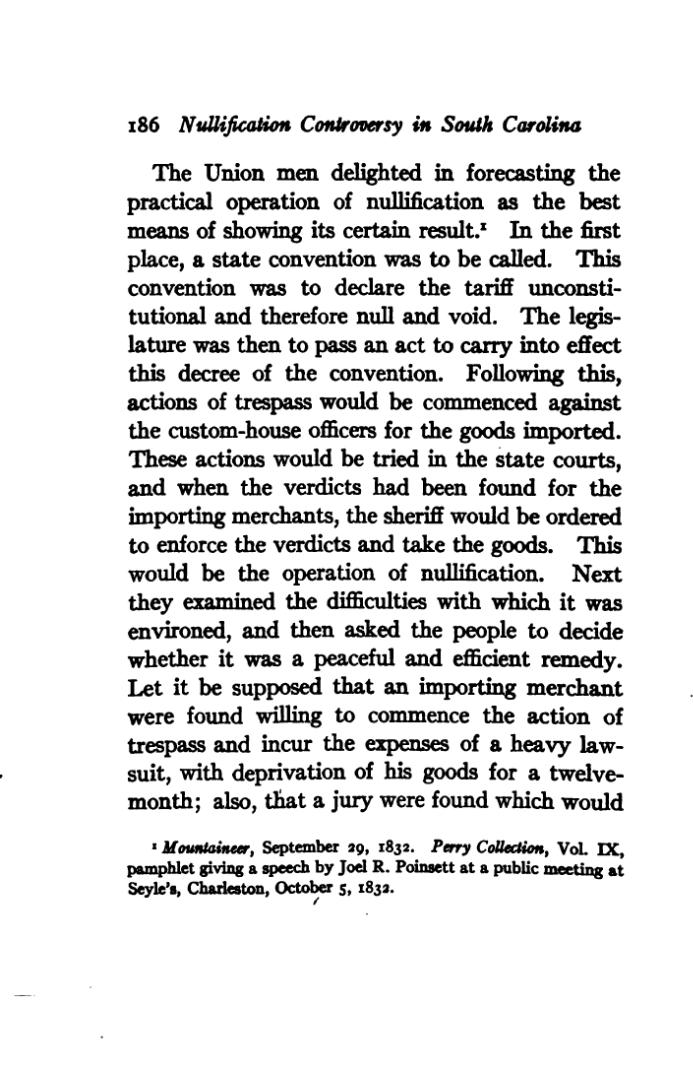The Union men delighted in forecasting the practical operation of nullification as the best means of showing its certain result.[1] In the first place, a state convention was to be called. This convention was to declare the tariff unconstitutional and therefore null and void. The legislature was then to pass an act to carry into effect this decree of the convention. Following this, actions of trespass would be commenced against the custom-house officers for the goods imported. These actions would be tried in the state courts, and when the verdicts had been found for the importing merchants, the sheriff would be ordered to enforce the verdicts and take the goods. This would be the operation of nullification. Next they examined the difficulties with which it was environed, and then asked the people to decide whether it was a peaceful and efficient remedy. Let it be supposed that an importing merchant were found willing to commence the action of trespass and incur the expenses of a heavy lawsuit, with deprivation of his goods for a twelve-month; also, that a jury were found which would
- ↑ Mountaineer, September 29, 1832. Perry Collection, Vol. IX, pamphlet giving a speech by Joel R. Poinsett at a public meeting at Seyle's, Charleston, October 5, 1832.
